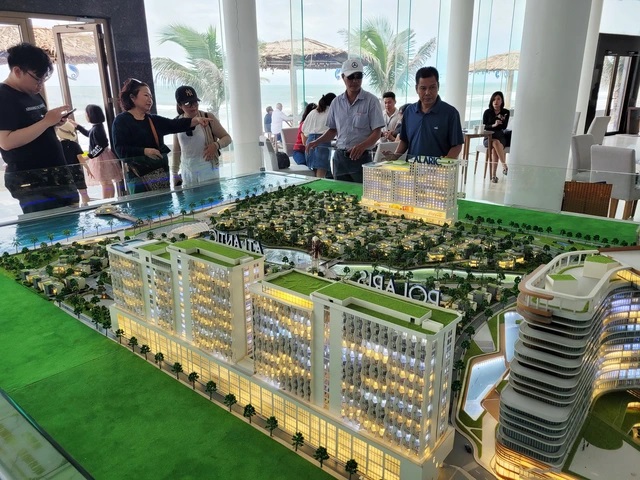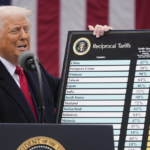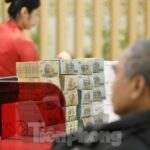
Vietnam’s Ministry of Finance is considering two methods for taxing real estate transfers, as shared in a recent announcement regarding personal income tax law amendments. Image: Tan Thanh
|
The Ministry of Finance of Vietnam is contemplating two methods for taxing real estate transfers as part of ongoing revisions to the personal income tax law. The chosen approach will depend on the ability to ascertain specific transaction information.
If taxpayers can provide proof of purchase price and related expenses, the personal income tax will be calculated based on actual profits, which is the difference between the selling price and total costs, taxed at a rate of 20%. Conversely, if these factors cannot be determined, the tax will be levied at a flat rate of 2% on the total transfer value.
Mr. Nguyen Van Duoc, General Director of Trong Tin Accounting and Tax Consulting Company, opined that the method based on actual profits is more reasonable and feasible. He believes this approach ensures fairness, accurately reflects the nature of personal income tax, and aligns with current legal regulations.
Mr. Duoc emphasized that taxpayers can provide invoices and documents to substantiate expenses related to the transfer transaction, enabling tax authorities to accurately calculate taxable income.
To address existing shortcomings, Mr. Duoc proposed the development of a national database for real estate transactions to ensure that contract prices align with market values. He also suggested enhanced supervision and stricter accountability for organizations providing invoices and related documents, facilitating transparency for citizens.
Mr. Duoc argued that the current practice of levying a 2% tax on the total transfer value, regardless of whether the seller makes a profit or loss, leads to inequality and potential budget shortfalls.
From a different perspective, Lawyer Nguyen Duc Nghia, a member of the Ho Chi Minh City Tax Consultancy and Agency Association, noted that many countries only collect personal income tax when sellers make a profit from real estate transactions. However, in Vietnam, the lack of tools to determine the actual value of transactions and the challenges in proving costs make the 20% profit-based tax proposal less feasible in the current context.
Lawyer Nghia suggested that the 2024 Land Law be used as a basis for calculating a more reasonable tax base. In cases where the actual value cannot be determined, he proposed using land price tables, reflective of market values, issued by local People’s Committees. Additionally, independent valuation of assets on the land, such as houses, should be conducted to ensure accurate taxation.
According to Mr. Nghia, this approach would ensure transparency, fairness, and practicality in tax management.
Article and photos by Thy Tho
– 13:51 05/07/2025
Is it Easy to Buy a House in Binh Duong with 2 Billion VND?
The Binh Duong primary apartment market has witnessed a significant surge in prices during the first few months of 2025, with a double-digit increase compared to the end of 2024. This unprecedented rise has taken many by surprise, as prices have soared to nearly VND 70 million per square meter.
“Cut Red Tape and Go Digital: Businesses Yearn for Streamlined, Efficient Administrative Procedures”
“On behalf of the business community, Mr. Tu Tien Phat, CEO of ACB, expressed at the seminar for contributing to Resolution 68, the strongest desire to vigorously promote administrative procedure reform towards simplicity, transparency, and comprehensive digitalization. This would provide a strong impetus for a robust recovery in production and business activities.”
The Day Deposit Rates Hit Rock Bottom: What Happened to the Banks?
In Q1 of this year, VPBank witnessed a significant surge in deposits, whereas Vietcombank experienced a slight downturn. Amidst rising credit, banks are exploring alternative means of capital mobilization.





















